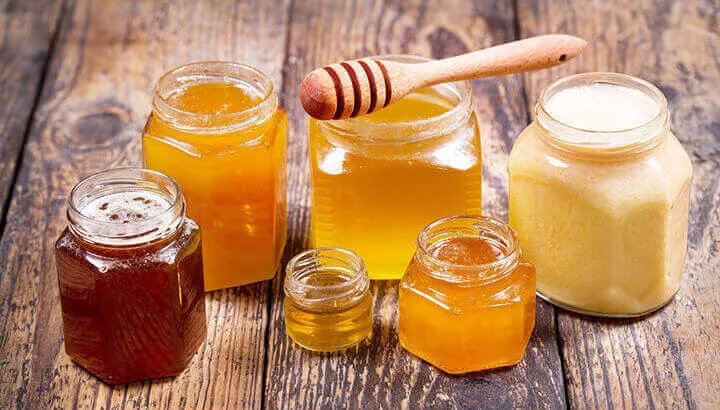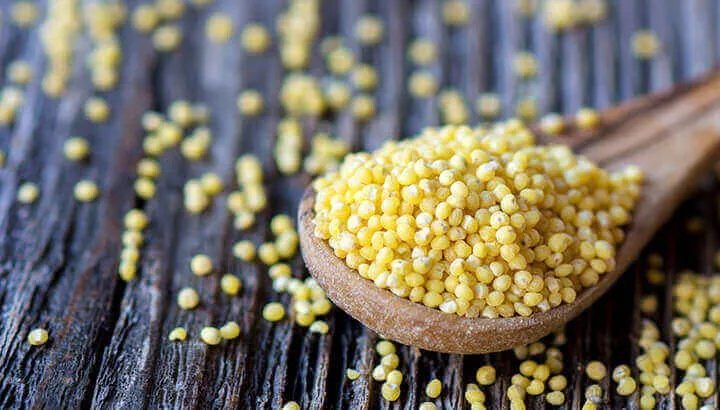
- Share on Facebook456
- Share on Pinterest
- Share on Twitter
The Bible serves as a cornerstone of faith for millions of people around the world. However, along with the teachings and parables, did you know that some of the foods mentioned in this ancient holy book can safely be called modern-day superfoods?
It’s true! Many of the foods that are described or mentioned in the Bible have amazing healing properties. These properties are just as potent today as they were thousands of years ago. It turns out that taking some nutritional advice from the Bible may not be a bad idea!
While there are many wonderful foods to be found in Bible verses, let’s take a look at six particularly healthy ones. Try adding these to your favorite recipes.
1. Honey

There’s a reason that raw honey is often referred to as “liquid gold.” It is arguably the healthiest sweetener out there. Honey contains a wealth of nutrients, including several B-vitamins, calcium, copper, phosphate, iron, magnesium, manganese, potassium and amino acids.
Eating raw honey can help with a number of ailments, including coughs and other respiratory symptoms, seasonal allergies (when the honey is local to your area), dry skin, burns and wounds. It can also help to support healthy gut bacteria, freshen your breath and even relieve hangover symptoms. Try drizzling some honey over fresh fruit, or add it to teas, smoothies and yogurt.
2. Lentils
Lentils are rife with nutrients, including a range of B-vitamins, fiber, copper, zinc, potassium, protein and phosphorus. They also contain a hefty concentration of molybdenum, a lesser-known nutrient required for the optimal function of a number of enzymes in the body. These enzymes are instrumental in the health of many of the body’s systems. Molybdenum is also linked to providing antioxidant support, which is important for combating free radicals and inflammation.
Due to their high fiber content, lentils are a great meal choice for both improving digestion and protecting your cardiovascular health. Eating lentils can also provide a healthy source of energy and stabilize blood sugar. Try a lentil stew with curry spices next time you’re in the mood for a hearty, flavorful dinner.
3. Millet

Millet is an ancient grain that has been around since the times of prehistory, so it’s no surprise that people were enjoying it in biblical times. It is naturally gluten-free, so it’s a great choice for individuals who are sensitive to gluten, or who just want to add a new, nutritious, whole grain to their meals. Millet contains an abundance of minerals, including copper, phosphorus, magnesium and manganese, along with heart-healthy plant lignans.
The magnesium content of this ancient grain has been linked to a number of health boons, including reducing the risk of cardiac incidents, lowering blood pressure and reducing frequency of migraines. Eating millet may also protect against certain cancers, and lower risk of gallstones and type 2 diabetes. Try it instead of rice for your next stew or stir fry.
4. Pomegranate
Pomegranates are a good source of vitamin A, vitamin C and vitamin E, all of which are antioxidant vitamins that help combat inflammation, improve immunity, support skin health and more. These prized fruits are also a good source of folic acid. On top of that, pomegranates contain caffeic acid, ellagic acid and punicic acid, polyphenols that may help to protect your heart and prevent certain cancers.
Eating pomegranates may also help to slow the aging process, reduce chronic pain such as arthritis pain, lower cholesterol and boost your mood. Try pomegranate over yogurt, in smoothies or as a topper to salads.
5. Olive oil

Olive oil is a staple of the Mediterranean diet, and a big part of the health benefits associated with following this particular diet. It is rich in oleic acid, which has been linked to improving immunity, reducing inflammation and potentially providing aid with cancers and autoimmune illnesses. It has also been linked to better wound healing. On top of that, olive oil is rich in vitamin E, which is crucial to keeping your skin healthy.
Getting more olive oil in your diet is great for getting antioxidants. It may also help to stabilize blood sugar, decrease LDL (“bad”) cholesterol and reduce your risk of cardiovascular disease. Use high-quality extra virgin olive oil in all of your homemade vinaigrettes and to top fish dishes, salads and more.
6. Wine
Wine has many appearances in the Bible, with a place in both ceremonies and miracles. Red wine, in particular, has many health benefits. These include lowering cholesterol levels, promoting longevity, protecting the heart, stabilizing blood sugar, improving memory, aiding in weight loss, reducing inflammation and combating infections. Some of these benefits are attributed to resveratrol, an antioxidant compound found in red grapes.
When choosing a wine, your best bet is organic red wine. Just remember that moderation is key; a large amount of alcohol of any kind does not do your body (or mind) any favors. A glass per day for women and two per day for men is the recommended limit.
What’s your favorite biblical food? How do you prepare it?
— Tanya Mead
- Share on Facebook456
- Share on Pinterest
- Share on Twitter

